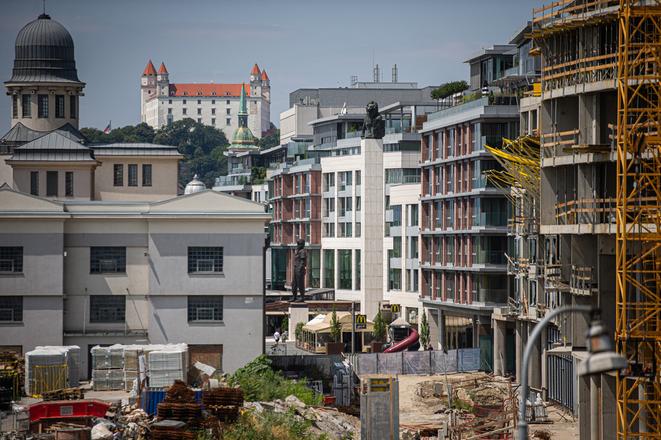The Covid-19 pandemic has hit city budgets across Slovakia, and the capital is no exception.
The coronavirus crisis wiped €25 million off the city’s revenues in 2020 and authorities estimate the figure for last year was similar.
A budget for 2022 was approved late last year, and there are fears that further lockdowns this year will see another downturn in income.
But at the same time as city officials worry about the effect Covid-19 might have on their coffers over the next 12 months, they say they are also having to deal with the underestimation of the capital’s population in the recent census which will affect the amount of funding Bratislava will receive.
Under Slovakia’s system of funding for municipalities and self-governing regions, cities get a proportion of funds raised from the income taxes of their residents. The greater the inhabitants in a city, the greater the amount of funds given to it.
Based on the 2021 census, the Slovak Statistics Office has put the capital’s population at 475,503. But city authorities say this is at least 20,000 lower than the real figure – meaning it will receive €7 million less per year - in funding based on income tax revenues, until at least the next census scheduled for 2031.
“The Bratislava region creates almost 30 percent of Slovakia’s total GDP, but the share of private individuals’ income tax [which the Bratislava region receives] is only 14 percent [of total individuals’ income tax in Slovakia],” Bratislava Mayor Matúš Vallo told Slovak Radio.



 Illustrative stock photo (source: SME)
Illustrative stock photo (source: SME)